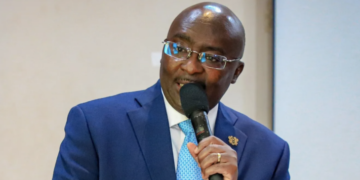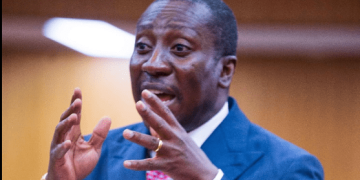The combined impacts of the ongoing COVID-19 pandemic and the Ukraine crisis are likely to further constrain Africa’s recovery, experts have warned.
This came during a high-level discussion that was held to offer African countries a platform for dialogue, exchange of ideas and experiences on the actual and potential impacts of the Russia-Ukraine crisis on African economies, the United Nations Economic Commission for Africa (UNECA) said in a statement issued Sunday.
Eunice Kamwendo, director of UNECA’s Sub-Regional Office for Southern Africa (SRO-SA), noted that African countries are most affected by the pandemic, and the combined impact of COVID-19 and the Ukraine crisis are likely to further aggravate liquidity issues constraining the continent’s recovery.
She emphasized that the African continent faces a high risk of food insecurity because Russia and Ukraine are major global suppliers of agricultural commodities such as maize, wheat, oils and fertilizers.
“The two countries, combined, provide 30 percent of the world’s wheat and barley needs; supply nearly one-fifth of maize globally, and account for over half of the global market share in sunflower oil, among other commodities,” the UNECA statement quoted Kamwendo as saying.
She noted that the economy of southern Africa, as a region, contracted the most out of all the sub-regions in Africa due to COVID-19.
Kamwendo cited a recent estimate by the African Development Bank (AfDB), which indicated that the southern Africa region’s gross domestic product (GDP) contracted by as much as 6.3 percent in 2020, compared to a 2.1 percent drop for the rest of Africa.
Angola’s Minister of Economy and Planning Mario Caetano Joao told the meeting that to counter shocks, Angola has engaged in deep reforms and changed its business model by prioritizing local production and diversifying from focus on oil production to heavy investments in agri-business, fisheries, and transport to give the country a comparative advantage.
“Ten years ago, Angola’s oil dependence was 43 percent and now oil dependency is only 20 percent, showing that the investments are bearing fruit and the country’s economy has stabilized despite the crisis,” the Angolan minister said.
Amos Lugoloobi, Uganda’s minister of state for finance, planning and economic development, on his part encouraged countries to increase local food production to prevent the dependency on imports.
Lugoloobi noted that Uganda is a net producer of its food supplies and export to neighboring countries. The country has also embarked on increasing the production of sunflower oil to counter rising prices and be self-sufficient and able to face shocks.
According to the UNECA, the meeting aimed to stimulate reflection on the impact of the crisis on the sustainable development of African economies, share experiences and perspectives on how to mobilize resources to counter the shocks of COVID-19 and the Ukraine crisis.
The event was co-hosted by the UNECA’s Sub-Regional Office for Southern (SRO-SA), in collaboration with its partners, on the margins of the ongoing 54th session of the Conference of African Ministers of Finance, Planning and Economic Development, which started on May 11 and will last through May 17, in Dakar, the capital of Senegal. Enditem.
Source: Xinhua



















































































